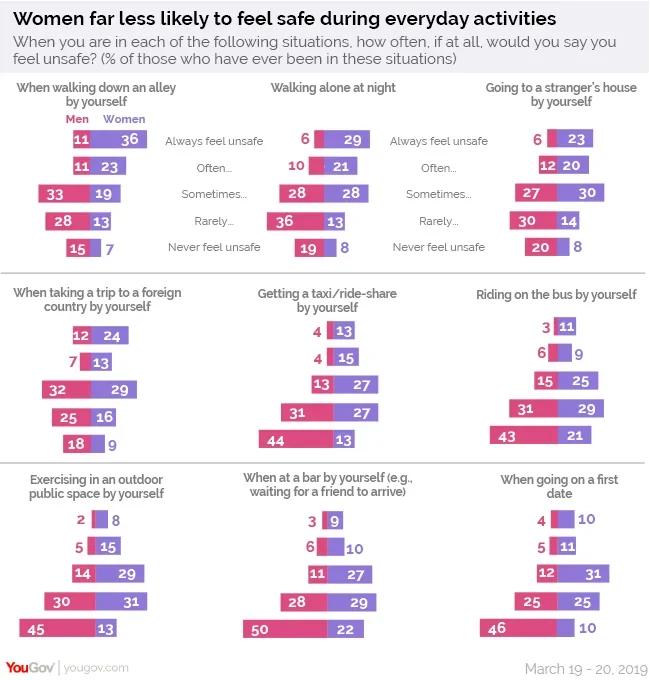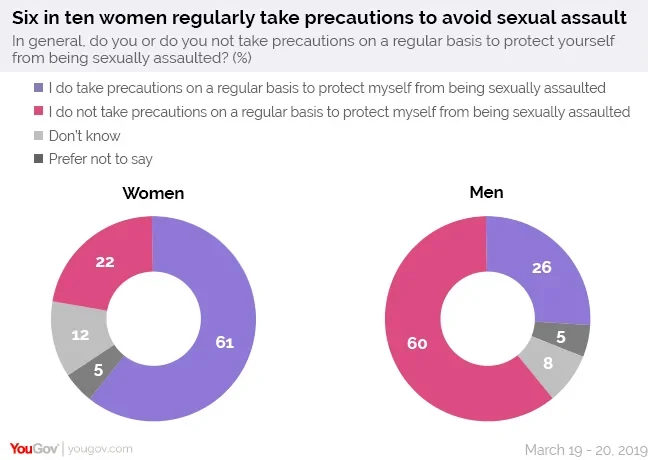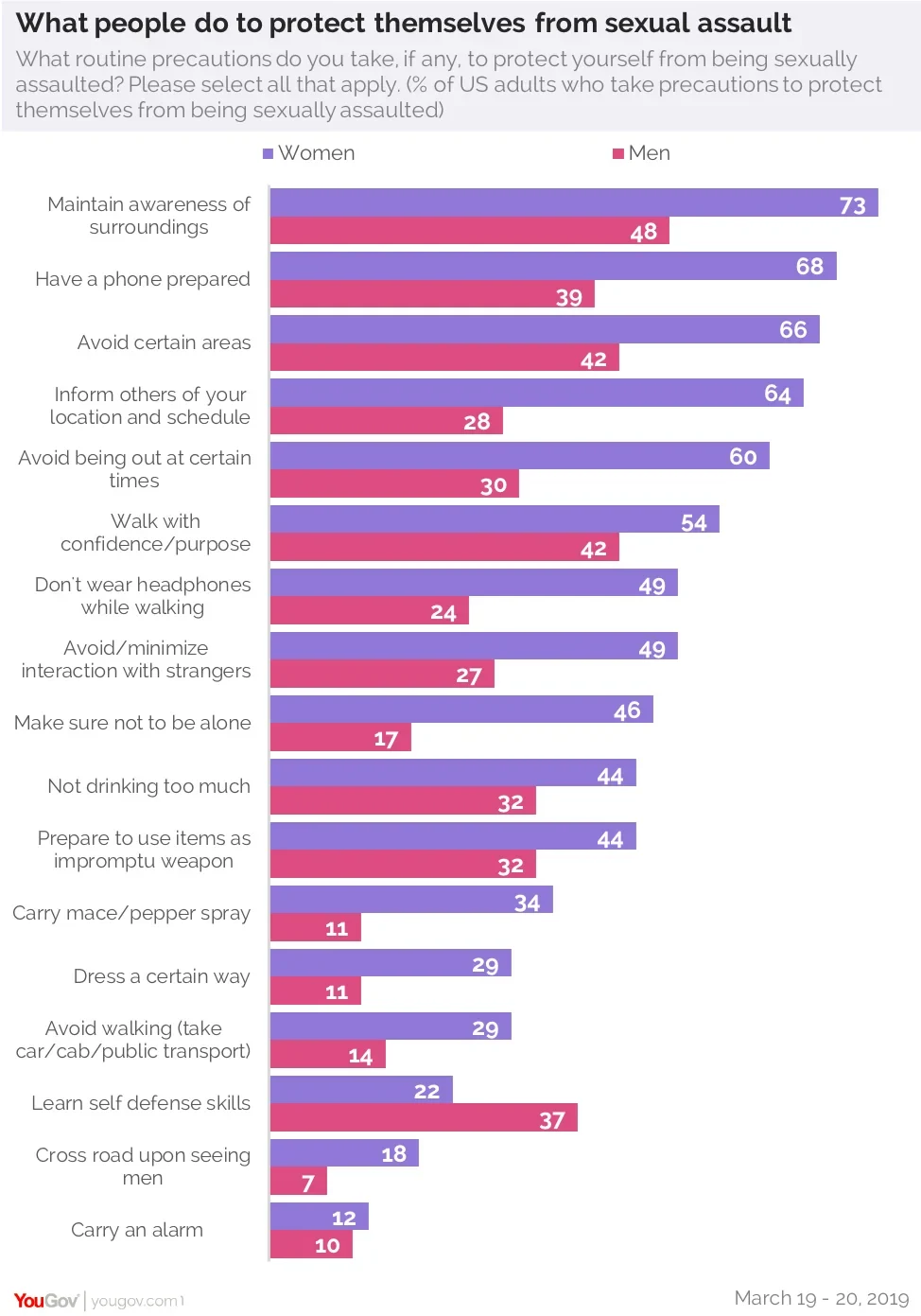50% of women say they always or often feel unsafe walking alone at night
Ahead of Sexual Assault Awareness Month in April, YouGov RealTime research finds that most American women (61%) say they regularly take steps to avoid being sexually assaulted. Women are also considerably more likely than men to say that they “always” or “often” feel unsafe participating in everyday activities like taking the bus alone, going on a first date, and exercising outdoors.
Research shows that 59% of women who ever walk down an alley alone always or often feel unsafe doing so, while 50% feel similarly about walking alone at night. Women are at least twice as likely as men to always feel unsafe going to a stranger’s house alone (23% of women vs. 6% of men), taking a trip to a foreign country alone (24% vs 12%), or getting a taxi or ride-share by themselves (13% vs 4%). Data also suggests roughly one in five (21%) women say that they always or often feel unsafe when going on a first date. Only 9% of men experience similar feelings about being unsafe on a first date.

Given that women are more likely to feel unsafe in these scenarios, it is perhaps no surprise that they are also much more likely than men to avoid these situations altogether. Close to half (46%) of women say that they’re never at a bar by themselves, while just three in ten (30%) men say this is the case for them. One quarter (25%) of women say they never walk alone at night, compared to a mere 8% of men who said the same. Women (44%) are also 16% more likely than men (28%) to say they never take the bus alone, and 20% more likely to say they never walk down an alley alone (39% vs 19%). In every single proposed scenario included in this research, women were more likely than men to say that they are never in these situations.
YouGov ran a nearly-identical survey of UK residents in February 2019, and found that in many situations, British women are less likely than American women to report always feeling unsafe.
Of women who ever do the following things, British women are less likely than American women to say they always feel unsafe while walking alone at night (23% of British women vs 29% of American women), going to a stranger’s house alone (10% vs 23%), getting a taxi alone (7% vs 13%) and going on a first date (5% vs 10%).
British women are also generally less likely than American women to avoid many of these situations altogether. Fewer than one in five (18%) British women say they never walk alone at night, while only 31% say they’re never at a bar/pub alone. About one in three (29%) say they never take a taxi or rideshare alone.
Most women regularly take precautions to avoid sexual assault while most men don’t
Approximately six in ten (61%) women say that they regularly take precautions to avoid sexual assault. A nearly-equal number (60%) of men say they don’t.
When UK residents were surveyed on the same topic in February, results indicated that British women are about half as likely as US women (32%) to say they take steps to prevent being assaulted. Only 9% of British men said they take precautions.

The most common ways are: maintaining awareness of one’s surroundings (73% of women who take precautions do this), having a phone prepared (68%), avoiding certain areas (66%), informing others about one’s location and schedule (64%), avoiding being out at certain times (60%), and walking with confidence/purpose (54%).

The only step that men are more likely than women to take is learning self-defense skills. Close to four in ten (37%) men who ever take steps to protect themselves from sexual assault say they do this, while only 22% of women gave a similar response.
Methodology: Total sample size was 1,206 US adults aged 18+, including 551 men and 655 women. The responding sample is weighted to the profile of the sample definition to provide a representative reporting sample. Interviews were conducted online between March 19 - 20, 2019.
See full results here.
Learn more about YouGov RealTime research and sign up to be a panelist here.
Image: Getty
If you need support or information about dealing with sexual assault, you can contact RAINN at 800.656.4673 or chat online.







